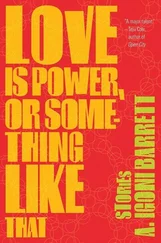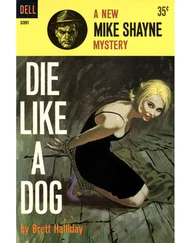My cameraman Francois and I decided foolishly to take a break from the war when our families came to visit us from Joburg. We wanted to see one of the greatest sights Africa has to offer: the Victoria Falls. When we’d phoned the magnificent Victoria Falls Hotel to book rooms, the receptionist had seemed a little surprised. We understood why when we got there. Apart from one other individual we were the only guests. We had the breathtaking spectacle of the falls to ourselves – and what a spectacle it was. No wonder Livingstone called it ‘the most wonderful sight I have witnessed in Africa’ when he first set eyes on it in 1855. The native Lozi people call it ‘Mosi-oa-Tunya’ – the Smoke that Thunders. You can see from miles away the spray that rises high into the sky like a great cloud from the billion gallons of water crashing over the edge every minute. And no wonder that in pre-war days this had been one of the most popular tourist destinations on the continent. The fact that we were just about the only guests in the hotel bore powerful testimony to the effect the war was having on this extraordinary country. Surely Ian Smith would have to acknowledge the inevitable. It came sooner than many had expected.
Two years later at the end of 1979 I was back in London to report on the Lancaster House conference, which had been called by the British government and was to be attended by all the warring parties in an attempt to bring peace to Rhodesia – or ‘Zimbabwe Rhodesia’ as it was known by then. I agreed with my old friend John Simpson, who was reporting for radio news, that the conference was doomed to fail and we’d be back home in Joburg before the week was out. It seemed inevitable. Ian Smith had conceded defeat in the guerrilla war, but how could the three warring parties – Smith, Mugabe and Nkomo – ever agree to a peaceful settlement? To John and me and many other observers, it was inconceivable. We could not have been more wrong. The conference lasted for the best part of three months and ended in a peace agreement.
I was to make one more journey into the Rhodesian bush some months later, this time with a squad of British commandos whose job it was to help keep the peace while Rhodesians prepared to vote. All Rhodesians. Black and white. The commandos dug a deep pit, lit a fire in it and kept throwing in wood until there was a great pile of red-hot ashes in the bottom. Then they heaved the carcase of a sheep into the pit, filled it with soil and forgot about it for twenty-four hours. It was easily the best meat I have ever eaten. The next day the voting began and two days later Robert Mugabe and his ZANU party emerged victorious. It was my last election in Africa.
Here is one small footnote which demonstrates wonderfully how the BBC has changed in the decades since I reported on that bloody guerrilla war. In a rather pathetic and totally unsuccessful attempt to win some sympathy for myself I had mentioned to my editor how dangerous it was out in the Rhodesian bush. Today reporters are usually ‘embedded’ with soldiers if they are to report a war. The commissars of Health and Safety will settle for nothing less. But there were no sympathetic soldiers to guard us in Rhodesia, and although our Land Rover had a piece of tin welded to the bottom to protect us against land mines (fat chance) there was no protection from the guerrillas who would come hunting when they heard the bang. And those desperate men did not discriminate. If we were white, we were the enemy.
‘No problem,’ said my entirely unimpressed boss, who just happened to be a colonel in Britain’s Territorial Army in his spare time. ‘You need a couple of sub-machine guns. Loose off a few rounds and that’ll scare the buggers off.’
Конец ознакомительного фрагмента.
Текст предоставлен ООО «ЛитРес».
Прочитайте эту книгу целиком, на ЛитРес.
Безопасно оплатить книгу можно банковской картой Visa, MasterCard, Maestro, со счета мобильного телефона, с платежного терминала, в салоне МТС или Связной, через PayPal, WebMoney, Яндекс.Деньги, QIWI Кошелек, бонусными картами или другим удобным Вам способом.












